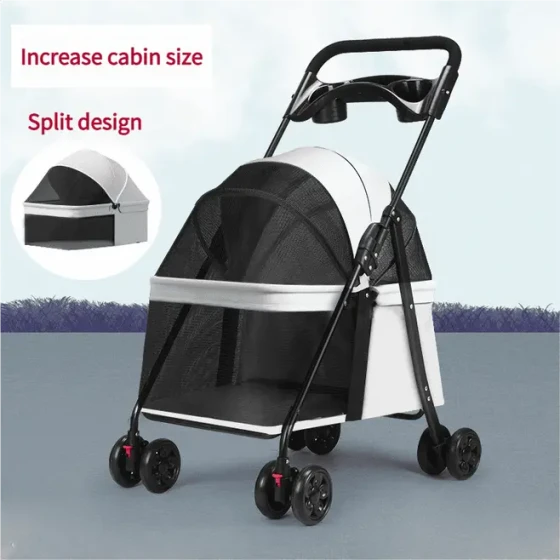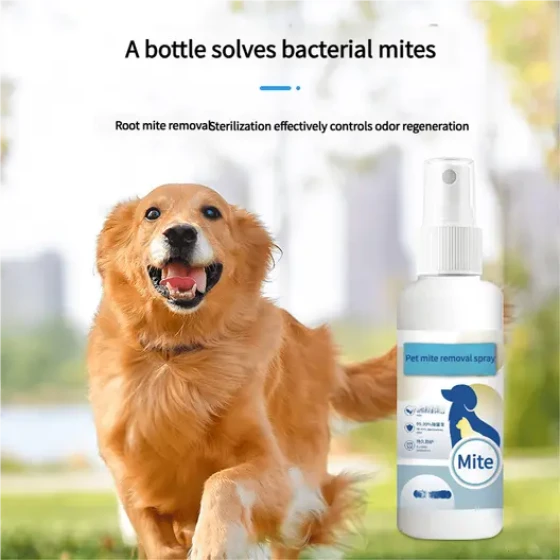Advantages and Disadvantages of Keeping Dogs Indoors and Outdoors

Keeping dogs indoors allows owners to detect problems with their dogs more promptly
Although most dog-owning families currently keep their dogs indoors, there are also some owners who have to keep them indoors due to lack of extra space. Both indoor and outdoor dog keeping have their own advantages and disadvantages, and ultimately it depends on one’s actual conditions and preferences to decide.
1. Advantages of Keeping Dogs Indoors
1. Closer relationship between dog and owner
If the dog is kept indoors, the contact time between the two will surely be much longer. Owners can interact with the dog more conveniently and more easily understand the pet's emotions, habits, and condition, making them really feel like a family member and strengthening their relationship.
2. Indoor environments are generally better than outdoor ones
Putting other factors aside, indoor hygiene environments are mostly superior to outdoor ones. Also, whether it’s rainy, windy, or snowy, owners don’t need to worry about their dogs.
3. Problems can be detected immediately
When dogs make mistakes, if owners do not immediately notice and correct or discipline them, counting on corrective measures afterward is not very effective for improving the dog's behavior. Instead, it can confuse the dog's training. If the dog is kept indoors, the owner can correct the dog in a timely manner.
4. May help boost immunity in infants
Research from Finland found that infants living in homes with dogs are less likely to suffer from respiratory diseases and ear infections and that dog presence helps improve immunity during the infant’s first year after birth.
Disadvantages:
1. Dog’s random excretion affecting indoor environment
Therefore, the most basic thing is to teach dogs to relieve themselves in designated spots. This is not hard; almost all dog owners teach this basic training. Otherwise, the house can be a mess. At the beginning, it’s best to patiently cultivate this good habit, which can save a lot of trouble later.
2. Hair shedding not cleaned properly can be mistakenly ingested
During shedding season, dogs may lose hair heavily. It’s best to clean it up promptly; otherwise, if dogs often lick the floor, they might ingest a lot of hair.
3. Possible lack of exercise
Because many people live in apartment-style homes and owners are lazy to take dogs out, dogs do not get enough exercise, leading to decreased physical fitness.

Even when keeping dogs outdoors, hygiene issues must be considered
2. Advantages of Keeping Dogs Outdoors:
Does not cause excessive odors; no worries about dogs relieving themselves randomly; enough space for dogs to exercise.
Disadvantages:Cannot always monitor the dog’s condition; less time spent interaction for working people; dogs are more prone to catching colds.
3. Precautions for outdoor keeping:
1. Dog’s nutrition
Because dogs are kept outside, the environment’s temperature and cleanliness are worse than indoors, so nutrition cannot be lacking. Otherwise, they will not have enough strength or immunity and will be more prone to illness.
2. There must be a shelter to block wind and rain
Dogs cannot be kept completely exposed to the elements, as this greatly affects the pet.
3. Pay attention to the length of the leash
Dogs kept outdoors may have accidents caused by their leash, such as accidentally loosening and running away. Therefore, when choosing a leash, it is important to pay attention to both length and tightness.
4. Regularly clean the surrounding environment
Even when kept outdoors, hygiene cannot be neglected. Dog excrement must be cleaned in time to avoid prolonged exposure and bacterial growth.





